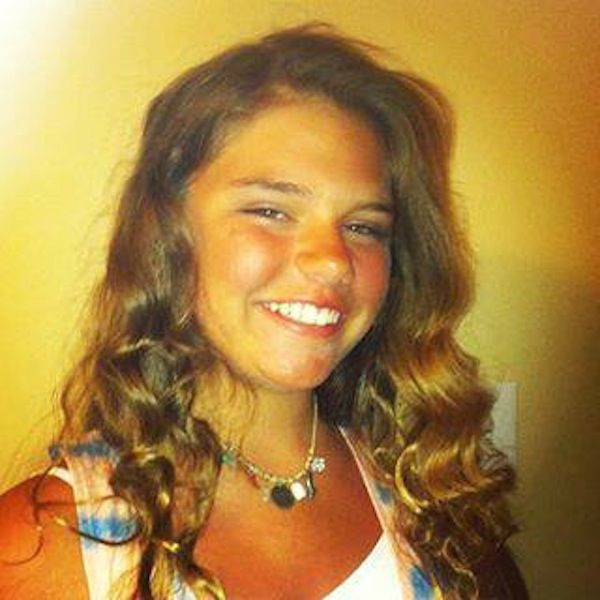Kali Hardig Returns Home After Surviving Brain-Eating Amoeba Infection; Mother Calls It A 'Miracle'

Less than two months ago, 12-year-old Kali Hardig was fighting for her life while suffering from primary amebic meningoencephalitis (PAM), a parasitic infection caused by the brain-eating amoeba Naegleria fowleri. A month ago, doctors were able to rid her brain of the parasite, but she was unable to speak and in need of intensive rehabilitation. Beating the odds, Kali went home on Wednesday, happy, and able to walk and speak.
“I was real sick,” Kali told ABC News. “Momma wouldn’t leave the hospital at all. Momma was scared to leave me. She told me.”
Since returning to her Arkansas home, Kali has been able to take a few steps here and there, but is still undergoing physical therapy. Starting Monday morning she’ll be returning to school part-time, with classes in the morning and physical and speech therapy in the afternoons. “Its awesome to be home,” she told CNN’s Kate Bolduan on New Day.
Kali's Journey To Recovery
Kali is one of only three people documented to survive an infection of the brain-eating parasites since they were first reported in 1962. Cases of the infection are rare; only about 120 people have been infected since recording infections, according to the Centers for Disease Control and Prevention (CDC). Naegleria fowleri lives in warm bodies of water, mostly in the southern states, buried in the soil of lakes and rivers. However, the microorganism can also be found in wet soil away from large bodies of water, and in swimming pools without enough chlorine.
The brain-eating parasite Naegleria fowleri enters the body when water is forced deep into the nose. From there, it follows the olfactory nerve until it gets to the brain, where it begins to destroy tissue. “The risky behavior is not just getting wet but forcibly pushing water up the nose,” epidemiologist Dr. Dirk Haselow told the Arkansas Times. The parasite is so deadly because it works quickly, affecting its host within one to seven days, and killing them one to 12 days after symptoms appear. These symptoms include severe frontal headache, fever, vomiting, seizures, altered mental states, hallucinations, and coma.
Kali first became infected after swimming in an Arkansas water park. She was admitted to Arkansas Children’s Hospital on July 19 with a high fever and vomiting. Doctors attributed part of her recovery to her mother’s swift reaction to the illness, but the doctors also moved quickly to prevent any further brain damage, which proved vital to her survival, the Arkansas Times reported.
Upon Kali's arrival at the hospital, doctors gave her antibiotics and antifungals, and placed a catheter in her brain to reduce swelling. But her condition worsened requiring her to be intubated. Critical care specialist Dr. Jerril Green then lowered her body temperature down to 34 degrees celsius (93.2 degrees fahrenheit) in an effort to reduce swelling. He also administered miltefosine, a German breast cancer drug that is unapproved by the U.S. Food and Drug Administration (FDA), but has been found to help kill the brain-eating amoebas. Two weeks ago, her brain showed no signs of the brain-eating amoeba's presence.
“It was a long haul,” Kali’s mom Traci Hardig, told CNN. “We were in the intensive-care unit (ICU) for 22 days. It was like a roller coaster — I mean, one moment things would be going good, and then the next moment something else could happen.”
Twelve-year-old Zachary Reyna, who became the second case of PAM this summer, died last month after playing in a water-filled ditch. Reyna did not recover from the infection, despite being treated with miltefosine. Another boy, who was 4 years old, died last week after becoming infected while playing on a slip ‘n slide water toy while visiting a home in St. Bernard Parish, just outside of New Orleans. Since then, the parish discovered that its water system is contaminated with the parasite, and has cautioned residents from letting water into their noses. The water supply, according to health officials, is safe to drink since stomach acid can kill the amoeba once they are ingested.
Kali's Plans And Her Mom's Advice
When Kali was asked what she planned to do after arriving back home, she immediately answered that she wanted to play with her one-year-old dog, Chloe. “I have a little Yorkie and I’m going to play with her and lie on my bed,” she told ABC News. Her mother is ecstatic to have her home telling CNN that she is “so thankful and blessed… it’s just a miracle.”
She also offered advice to any parents who might be worried that their child has the parasite. “If you believe that there’s something more wrong with your daughter or son than a simple virus or stomach flu, stay in there, hang in there,” she told CNN. “Talk to a doctor … and reassure them that this is not a normal illness.”



























